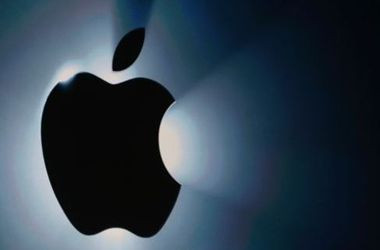Watch How This Apple Inc. (AAPL) Partner Plans To Help Expand Devices Into The Workforce [VIDEO]

Apple Inc. (NASDAQ:AAPL), the world’s most valuable company by market capitalization, passed The Coca-Cola Company (NYSE:KO) Monday as the world’s most valuable brand on Interbrand's yearly Best Global Brands list.
Last week the tech giant said sales for its new iPhones had set a record of 9 million within their opening weekend, and added that fiscal fourth-quarter revenue should be near the high end of its previous forecast of $34 billion to $37 billion. In addition, the company said more than 200 million iOS devices have downloaded Apple's latest iOS 7 software since its release on Sept. 18.
Apple named DecisionPoint Systems Inc., which partners with companies such as Morotola, Panasonic Solutions and others, as a business partner at the end of 2012 to help expand Apple’s products into business through the implementation of enterprise mobility technologies. DecisionPoint designs, develops, deploys and maintains mobile computing solutions that help large and small corporations use mobile technologies in retail, warehousing distribution, transportation and the field workplace as the expansion of smartphones and tablet use in the workforce grows.
DecisionPoint CEO Nicholas R. Toms spoke to the International Business Times from the floor of the New York Stock Exchange last week to discuss the company's relationship with Apple and how it plans to help integrate the tech giant's products into businesses in a secure way.
“We were appointed as a business partner at the end of last year, one of a handful, to help them bring their products into business,” said Toms. “We are now deploying Apple products aggressively in certain markets, particularly in retail, where Apple devices for in-store applications are now approaching 40 percent of the market.”
Toms explained that any success Apple has is helpful for its partners because the brand makes it easier for partners to bring Apple products to DecisionPoint’s business customers.
“Increasingly, companies are allowing their employees to bring their own cell phones, their own smartphones to work, and then they have to hook them into the internal operating systems of the enterprise, and they’re all sorts of security issues there,” said Toms. “We have a whole slew of services to protect the network, the device and the applications and the corporate confidential data. When we do that, it makes it easier for people to bring their [iPhone] 5c’s and their 5s’s in and use them as a single device for everything they do privately and also in terms of their business relationship with their employer.”
Although the tech giant’s fiscal third-quarter earnings released in July beat Wall Street expectations, the company did show signs of slowing demand in China. For the quarter, Apple earned $6.9 billion, or $7.47 a share, on revenue of $35.3 billion, compared with a profit of $8.8 billion, or $9.32 a share, on revenue of nearly $35 billion in the year-ago period.
While the company topped estimates and sold 31.2 million iPhones during the period ended in June, revenue from greater China plunged 43 percent from the second quarter and 14 percent from the year-ago period. To battle the slowing demand, Apple unveiled the highly anticipated next-generation iPhone 5S and iPhone 5C on Sept. 10, though shares initially fell after disappointment over the pricing of the lower-cost iPhone 5C, as investors feared it may be too high and could limit sales in key emerging markets.
In the opening weekend, sales of the new devices topped 9 million, compared with the iPhone 5's sales of 5 million in the first weekend after its launch a year ago. The company launched the two new models simultaneously in 11 countries, including the Chinese market, while the iPhone 5 in 2012 was unveiled in nine countries.
“I think anything that brings the price point down in the Chinese market certainly is going to be helpful, and they’ve done it in a way that I think still protects that very premium brand that’s so vital to them and is very important to us as partners when we come to bring their devices into business,” said Toms.
As far as helping expand Apple products into business, DecisionPoint plans to assist the company by providing mobile solutions to businesses. DecisionPoint announced in April support for the Apple iOS mobile operating system for its popular APEXWare Field Service software product.
Toms said DecisionPoint is in the business of providing mobile solutions to businesses, and added that this is a focus Apple is now heavily concentrating on.
“Where we can help Apple is we can bring them into all sorts of enterprises where we currently have mobile relations. I think their focus in terms of business sales is significantly increased, having been heavily consumer driven, they now see business not as a green field, but a big opportunity for them. We have a number of proprietary software that sit perfectly on the iOS operating systems and deliver streamlining, efficiency, real-time visibility and real-time data in the power of a user’s hand.”
On Monday, Apple closed the trading session down 1.24 percent to $476.75.
© Copyright IBTimes 2024. All rights reserved.






















